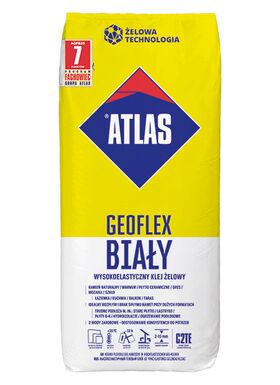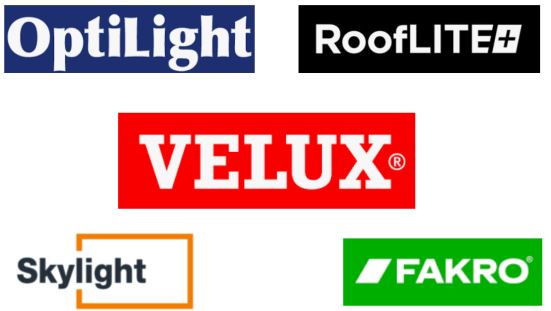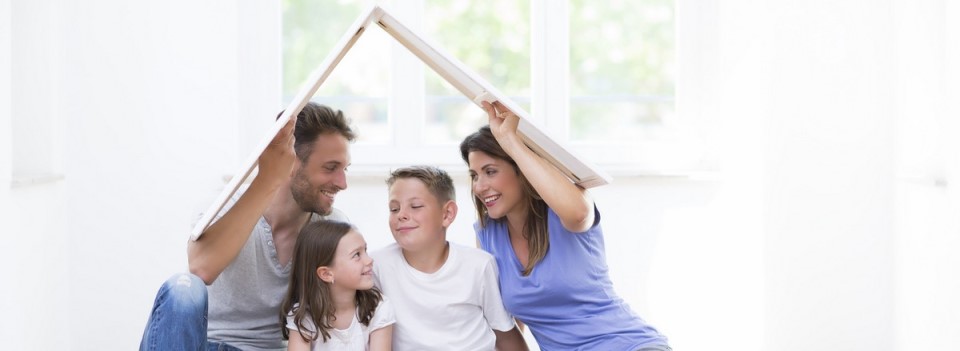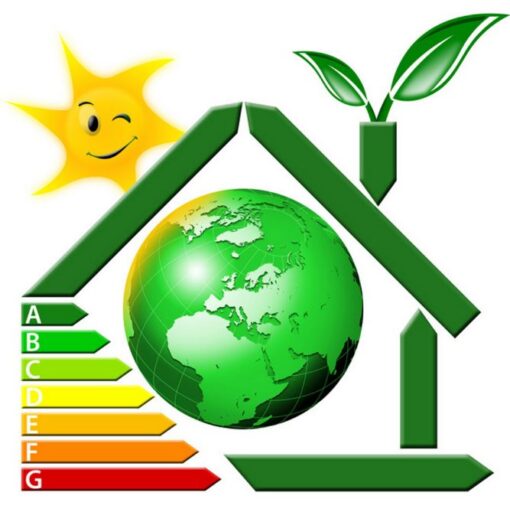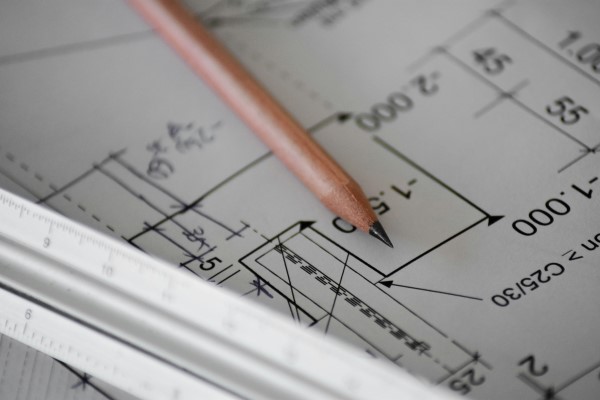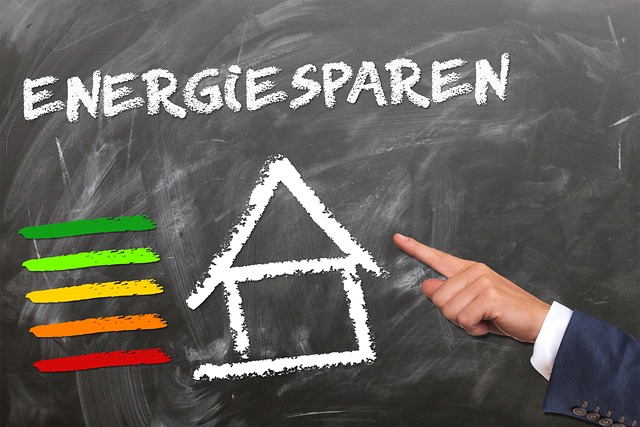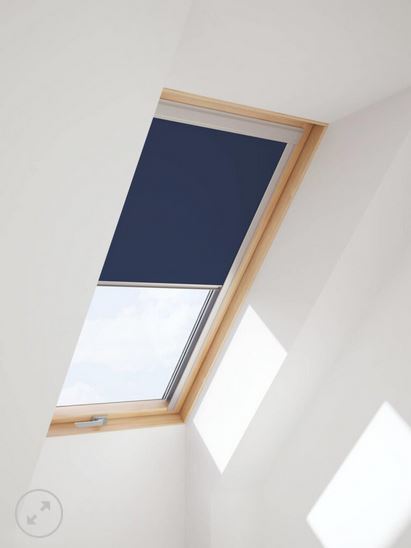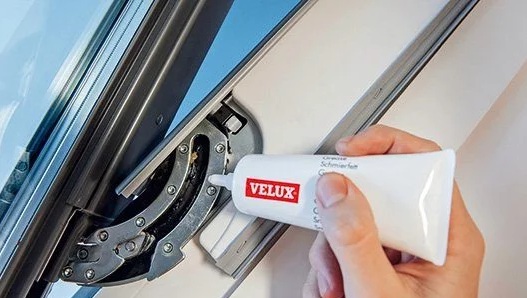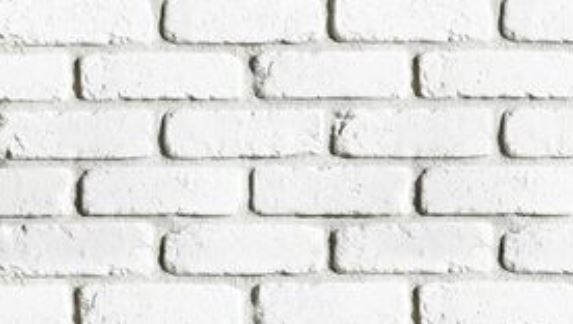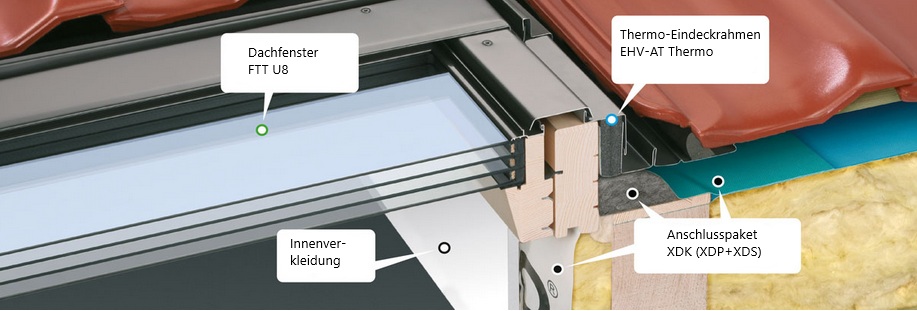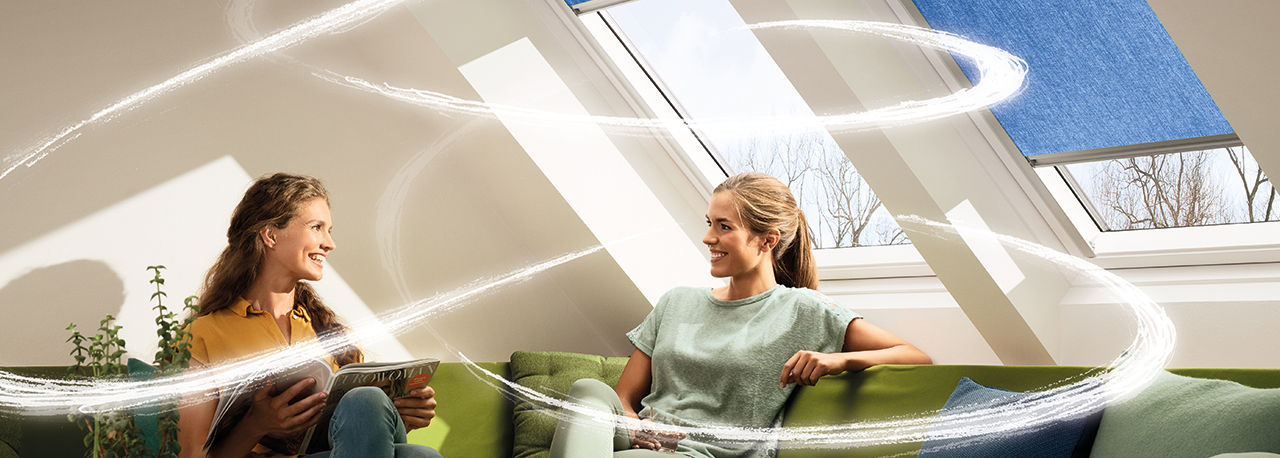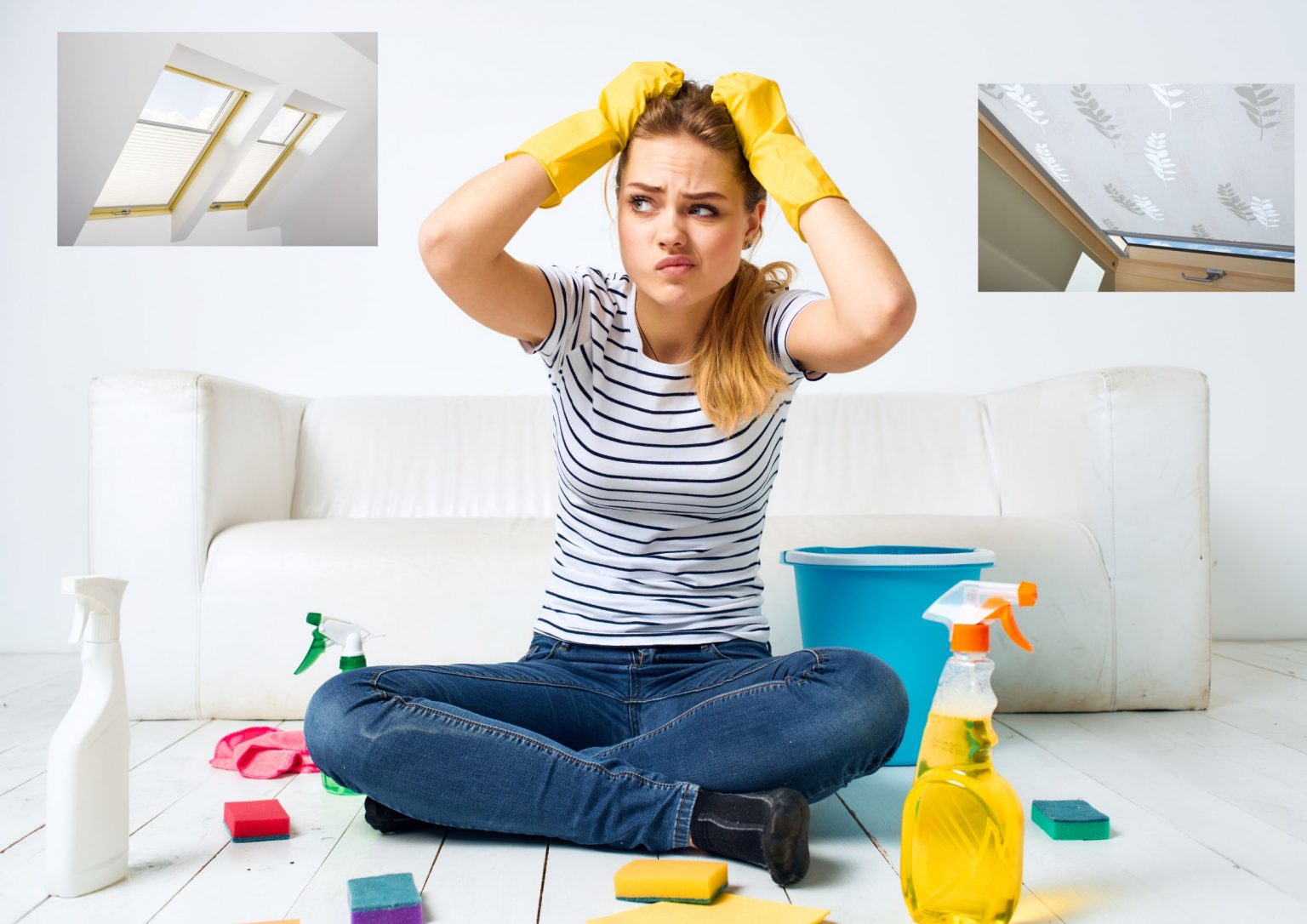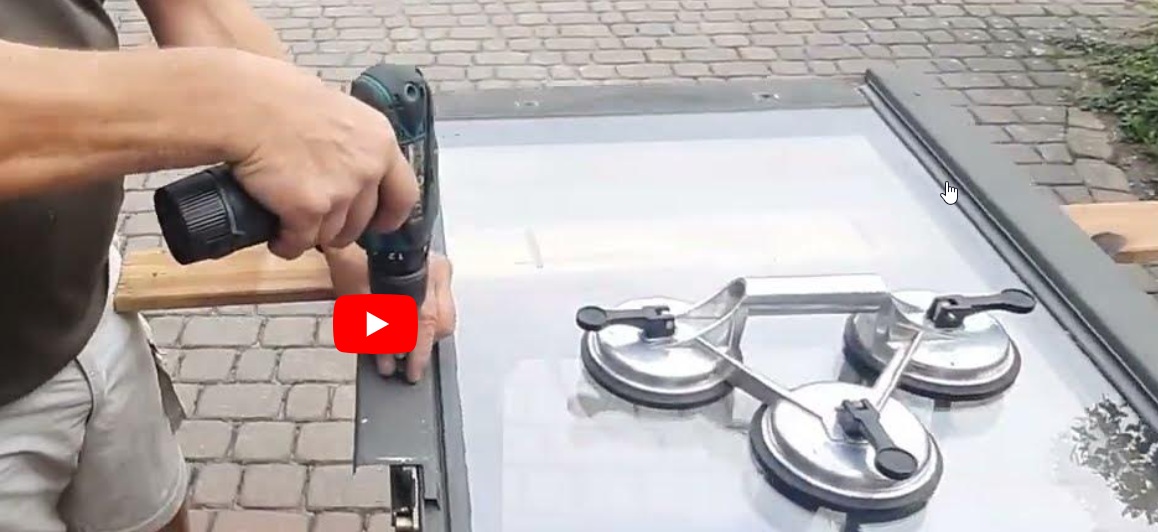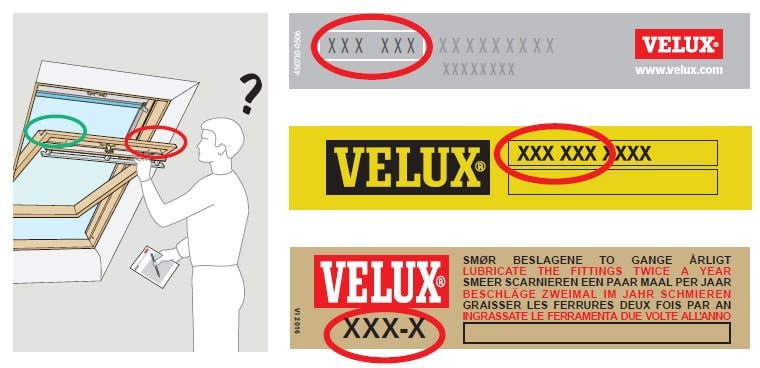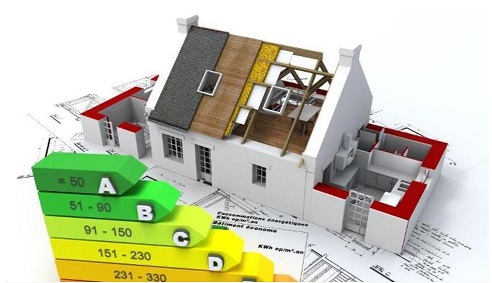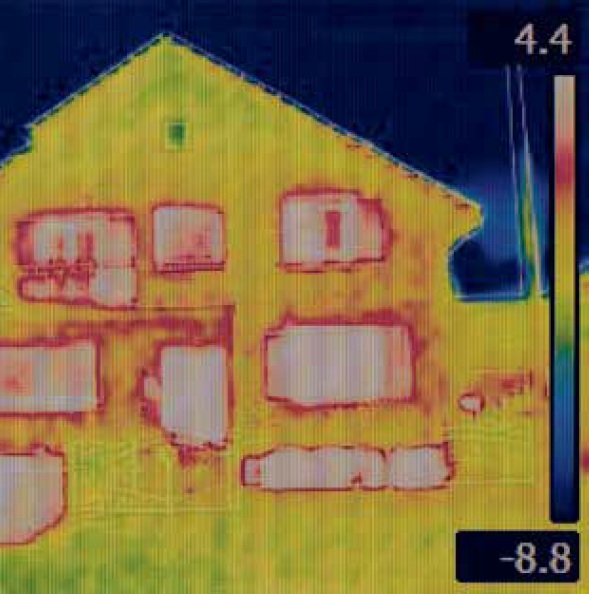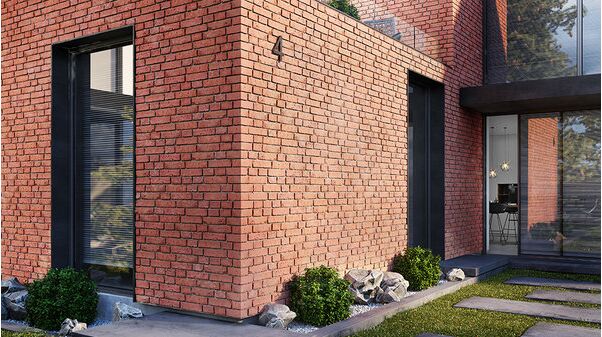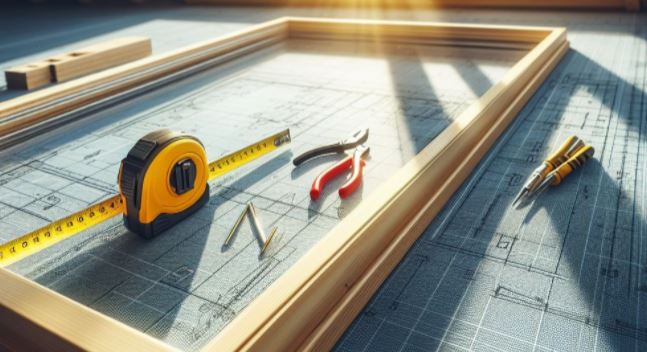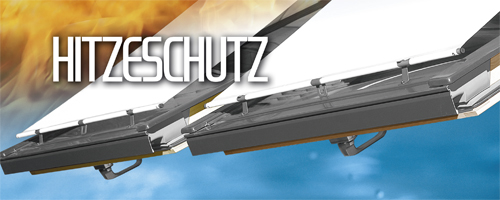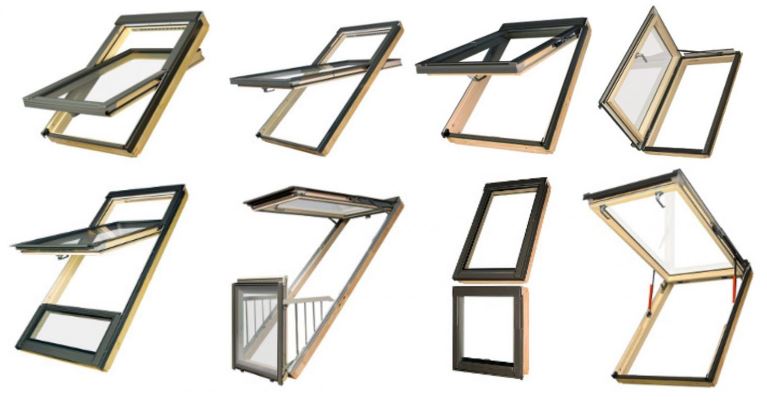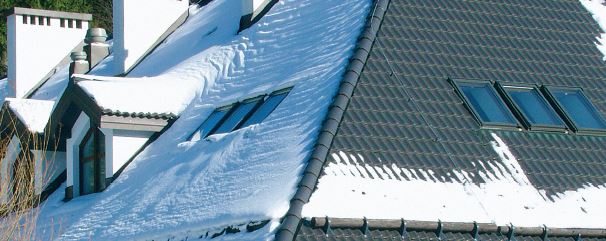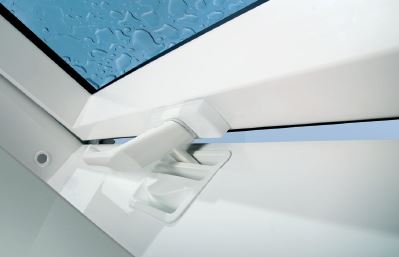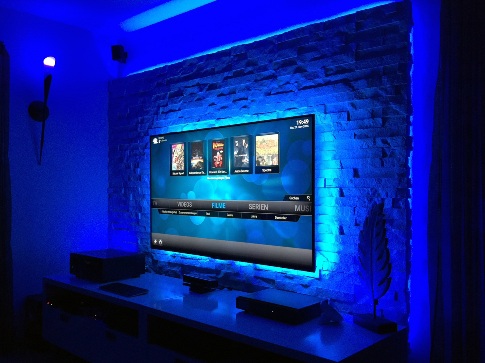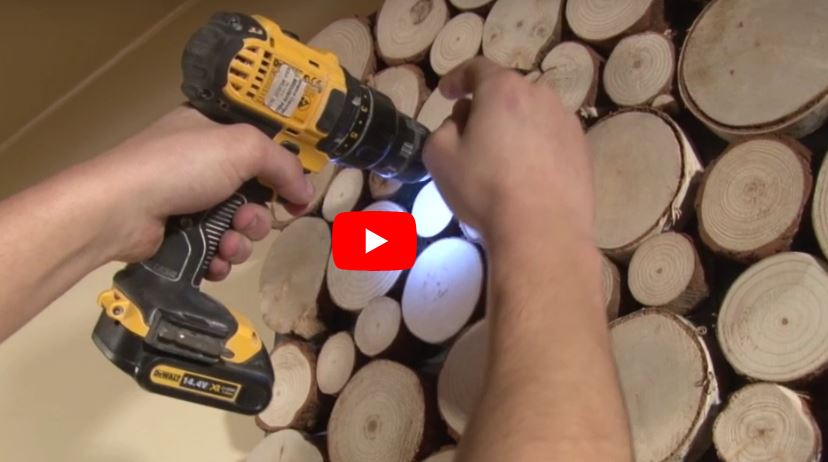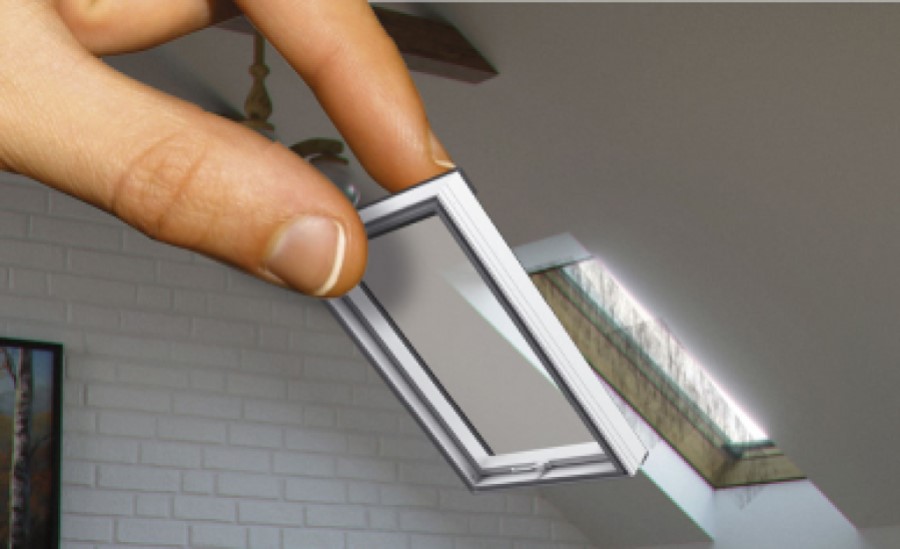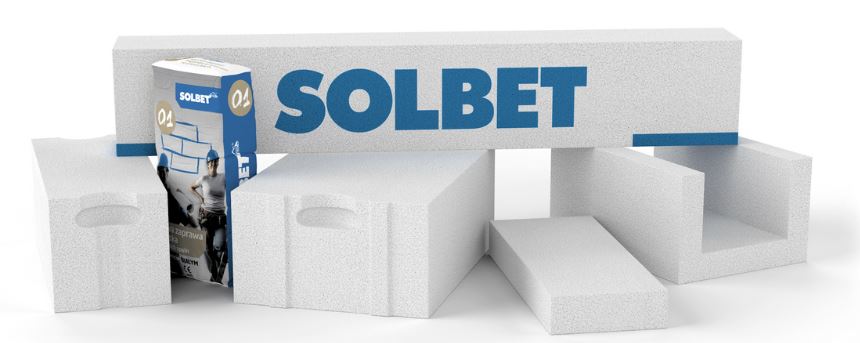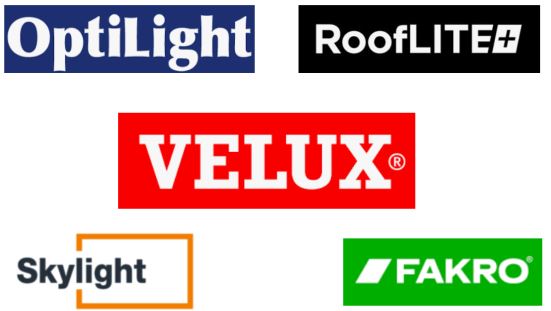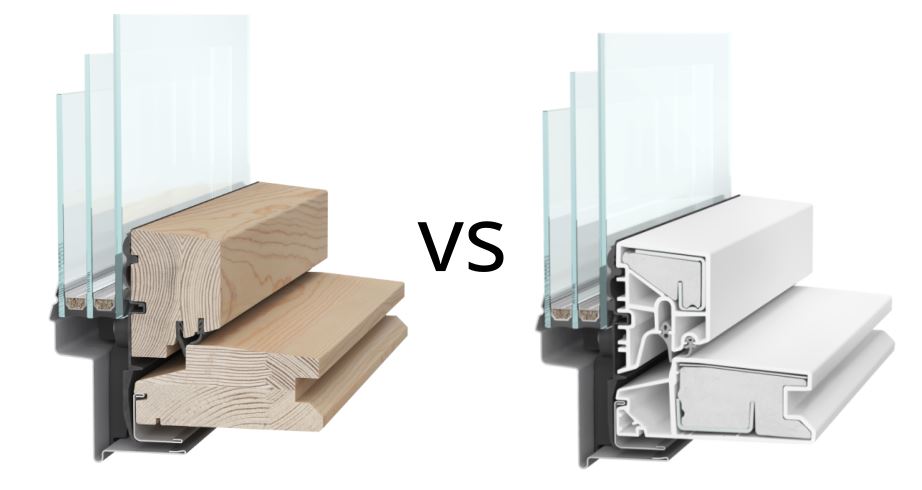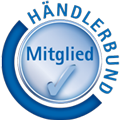Highly flexible deformable gel adhesive 2-15 mm (C2TE S1 type). ATLAS ULTRA GEOFLEX recipe contains unique siliceous gel technology. The siliceous gel offers exceptional ability of water retention. The gel fills pores formed at the stage of adhesive binding by the net of inorganic bonds. The accumulation of part of mixing water ensures full cement hydration, regardless the cladding type in use. Owing to the appropriate water management, which is necessary for the binding process completion, gel adhesive assures perfect bonding to substrates.
The main characteristics
- for any type and size of tiles – ceramic, stone, glass, etc.
- for particularly difficult substrates: old tiles, terrazzo, plasterboards, OSB and damp proofing
- the widest range of use: on floor heating, terraces, in swimming pools
- no slip even in case of mega large cladding
The main parameters
- consumption: ca. 1.5 kg of dry mix / 1 m² / 1 mm adhesive layer
- adhesive thickness: 2 - 15 mm
- high bonding: ≥ 1 N/mm²
Unique Gel Technology
ATLAS ULTRA GEOFLEX recipe contains unique siliceous gel technology. The siliceous gel offers exceptional ability of water retention. The gel fills pores formed at the stage of adhesive binding by the net of inorganic bonds. The accumulation of part of mixing water ensures full cement hydration, regardless the cladding type in use. Owing to the appropriate water management, which is necessary for the binding process completion, gel adhesive assures perfect bonding to substrates of various absorptiveness level.
The use of siliceous gel technology gives following the advantages:
- possibility of fixing cladding of any type, both absorbable and non-absorbable,
- possibility of optimum adaptation of the adhesive consistency to individual contractor’s preferences and actual needs resulting from particular use, by dosing water within a range much wider than in case of traditional adhesives,
- full adhesive spreading beneath tiles, which improves adhesion and bond durability, particularly in case of outdoor use,
- safe cladding fixing on substrates exposed to direct sunlight, both during tiling and adhesive setting (e.g. on balconies, terraces, etc.).
PROPERTIES
Use
| TYPE OF FIXED CLADDING |
POSSIBILITY OF USE
|
| glazed tiles |
+
|
| terracotta |
+
|
| porcelain-gres tiles |
+
|
| laminated porcelain-gres tiles |
+
|
| natural stone cladding (granite, marble, travertine, syenite, etc.) |
application test required
|
| marble/ natural stone cladding insusceptible to discolouration |
+
|
| clinker |
+
|
| stone |
+
|
| ceramic mosaic |
+
|
| glass mosaic |
application test required
|
| glass, coloured, printed tiles |
application test required,
check tiles manufacturer recommendations
|
| concrete/ cement tiles |
+
|
| composite panels |
+
|
| insulation and acoustic panels |
+
|
| SIZE OF FIXED ELEMENTS |
POSSIBILITY OF USE
|
| small and medium size tiles (< 0.1 m²) |
+
|
| large size tiles (< 0.25 m²) |
+
|
| very large size tiles (> 0.25 m²) |
|
| slim type tiles |
|
| BUILDING TYPE |
POSSIBILITY OF USE
|
| residential |
+
|
| public access, educational, healthcare, offices |
+
|
| commercial and service |
+
|
| sacral |
+
|
| industrial buildings and multi-storey garages |
+
|
| industrial warehouses |
+
|
| infrastructure |
+
|
| SPA |
+
|
| PLACE TYPE |
POSSIBILITY OF USE
|
| surfaces of low traffic |
+
|
| surfaces of moderate traffic |
+
|
| surfaces of intensive traffic |
+
|
| rooms of limited operational loads in any building type |
+
|
| kitchen, bathroom, laundry, garage (in individual housing) |
+
|
| terraces, balconies, loggia |
+
|
| slab and beam stairs outdoors |
+
|
| showers, washes, rooms washed with plenty of water |
+
|
| communication routes (except of stairs outdoors) |
+
|
| façades (incl. ETICS systems) |
+
|
| cladding on plinths |
+
|
| technological tanks, pools, fountains, jacuzzi, balneotechnology (with no aggressive chemicals in use |
+
|
| sauna |
+
|
| showers, washes, rooms washed with plenty of water |
|
| SUBSTRATE TYPE - standard |
POSSIBILITY OF USE
|
| cement screeds and floors |
+
|
| anhydrite screeds |
+
|
| cement, cement-lime plasters |
+
|
| gypsum plasters |
+
|
| walls made of cellular concrete |
+
|
| walls made of silicate brick or hollow blocks |
+
|
| walls made of ceramic brick or hollow blocks |
+
|
| walls made of gypsum blocks |
|
| SUBSTRATE TYPE – deformable, so called difficult |
POSSIBILITY OF USE
|
| concrete |
+
|
| terrazzo |
+
|
| magnesium substrates |
+
|
| mastic asphalt screeds |
+
|
| dry substrates made of gypsum boards |
+
|
| screeds (cement and anhydrite) with water and electric heating system embedded |
+
|
| screeds with heating mats embedded in the adhesive |
+
|
| plasters with wall heating system |
+
|
| plasterboards |
+
|
| gypsum-fibre boards |
+
|
| cement-fibre boards |
+
|
| existing ceramic and stone cladding (“tile on tile”) |
+
|
| concrete resin lacquers bonded to the substrate |
+
|
| dispersion, oil paints bonded to the substrate |
+
|
| wooden floors (thick. > 25 mm) |
+
|
| mineral, dispersion and reactive sealing coats |
+
|
| OSB/3 and OSB/4 and chipboards on floors (thick. >25 mm) |
+
|
| OSB/3 and OSB/4 and chipboards on walls (thick. >18 mm) |
+
|
| insulation and acoustic panels |
+
|
| metal and steel surfaces |
|
| plastic surfaces |
|
TECHNICAL DATA
|
Mass bulk density (after mixing)
|
1.25 kg/m³
|
|
Mixing ratio (water/dry mix)
|
0.27 – 0.36 l / 1 kg
1.35 - 1.80 l / 5 kg
6.75 - 9.00 l / 25 kg
|
|
Min./max. adhesive thickness
|
2 mm / 15 mm
|
|
Adhesive preparation temperature, substrate
and ambient temperature during work
|
from +5°C to +35°C
|
|
Maturing time
|
5 minutes
|
|
Pot life*
|
approx. 4 hours
|
|
Open time*
|
min. 30 minutes
|
|
Adjustability time*
|
20 minutes
|
|
Floor access/ grouting with cement grout*
|
after 12 hours
|
|
Grouting with epoxy grout*
|
after 48 hours
|
|
Full operation load – foot traffic*
|
after 3 days
|
|
Full operation load – vehicle traffic*
|
after 14 days
|
|
Full water load – pools/tanks*
|
after 14 days
|
|
Floor heating (warm surface)*
|
after 14 days
|
The product has been given the Radiation Hygiene Certificate.
Detailed guidelines concerning the substrate preparation, depending on its type.
| Substrate type | Preparation |
| Fresh cement screeds ATLAS POSTAR 80, ATLAS SMS 15 or ATLAS SMS 30 | Stabilized min. 24 hours; optimum moisture content < 4% by weight. |
| Fresh cement screeds ATLAS POSTAR 20 | Stabilized min. 5 days; optimum moisture content < 4% by weight. |
| Other cement screeds | Stabilized min. 28 days; optimum moisture content < 4% by weight. Prime with ATLAS UNI-GRUNT or ATLAS UNI-GRUNT PLUS. |
| Anhydrite screeds ATLAS SAM 55, ATLAS SAM 100, ATLAS SAM 150, ATLAS SAM 200 and ATLAS SAM 500 | Stabilized min. 2-3 weeks; optimum moisture content < 0.5% by weight. Prime with ATLAS UNI-GRUNT or ATLAS UNI-GRUNT PLUS. If, white surface tarnish forms during drying, it should be removed mechanically (grinded) and the surface dusted. Screed grinding accelerates the drying time. |
| Cement and anhydrite screeds on floor heating | Appropriately heated and primed with ATLAS UNI-GRUNT or ATLAS UNI-GRUNT PLUS. |
| Terrazzo | De-grease the surface thoroughly, in case of waxed terrazzo remove the top layer or whole layer and apply a new one. |
| Walls made of silicate or ceramic bricks and hollow blocks, cellular concrete |
Leveling coat required (plaster). Direct fixing upon rough wall is possible in case of substrate appropriate dimensional tolerance. In such case it is necessary to execute full joint wall (or re-fill the joints) and repair any gaps or irregularities with ready-to-use mortars.
Prime with ATLAS UNI-GRUNT.
|
| Cement and cement-lime plasters made of ready ATLAS mortars | Stabilized min. 3 days* for each 10 mm of thickness; optimum moisture content < 4% by weight. |
| Other cement and cement-lime plasters | Stabilized min. 7 days*. Prime with ATLAS UNI-GRUNT. |
| Gypsum plasters | Prime with ATLAS UNI-GRUNT. If the gypsum plaster is applied in a wet room it should be protected thoroughly against moisture. If damp has the form of short term action or average water splash, then the plaster should be coated with a preparation improving resistance against damp penetration, e.g. ATLAS GRUNTO-PLAST. In environment more subject to damp it is necessary to apply a watertight coating, e.g. ATLAS WODER E. |
| Substrates leveled with ATLAS ZW 330 mortar |
Stabilized min. 5 h for layer thickness 5 mm.
Stabilized min. 10 h for layer thickness 10 mm.
Stabilized min. 20 h for layer thickness 20 mm.
Stabilized min. 48 h for layer thickness above 20 mm.
|
| Substrates leveled with ATLAS ZW 50 mortar |
Stabilized min. 12 h for layer thickness 5 mm.
Stabilized min. 24 h for layer thickness 10 mm.
Stabilized min. 72 h for layer thickness 20 mm.
|
| Concrete | Stabilized min. 21 days; optimum moisture content < 4% by weight. Remove remains of formwork oils and other substances which would impair adhesion obligatorily. Holes, cracks and other gaps should be filled with ATLAS BETONER system mortars. |
| Concrete water reservoirs, technological tanks, pool basins, made of watertight concrete | Grinding, sanding or wet sanding required in order to open the surface pores. |
| Water reservoirs, pool basins, wading pools, etc., surfaces proofed with elastic mortars or liquid foils | If required, clean the waterproofing coat delicately, make sure it’s not damaged. |
| Oil paints and resin lacquers coatings | Coatings of poor bonding to the substrate should be mechanically removed. Stable, well bonded coatings: grind, dust; prime oil coatings with ATLAS GRUNTO-PLAST. Gypsum fillers which the substrate used to be evened with should be removed. |
| Mastic asphalt screeds (thickened by rolling) and magnesium substrates | Sanding required. |
| OSB boards and wooden floors – the layer composition should be designed and executed in the way excluding the possibility of deformation, which may lead to the cladding damage. |
- check the boards type, on floors one may use boards OSB/3 and OSB/4 (acc. to PN-EN 300:2007), min. 25 mm thick, on walls – min. 18 mm thick,
- check the superstructure stability, the boards must not move under operation load; fix additional, stiffening boards layer, if needed,
- matt the surface with 40-60 sand paper,
- dust the surface,
- in order to improve the board protection against moisture and improve the bonding, apply the liquid foil ATLAS WODER W or ATLAS WODER E, alternatively use priming mass ATLAS GRUNTO-PLAST in order to improve the bonding.
|
| Floors made of timber (thick. > 25 mm), OSB or chipboards (thick. > 22 mm) | Grinding, dusting, priming with ATLAS GRUNTO-PLAST required. |
| Existing ceramic or stone tiles (indoors only) |
- check the bonding to the substrate of the existing cladding by tapping; individual loosening tiles must be removed,
- clean and de-grease the existing tiles surface,
- matt glazed tiles with a diamond grinder,
- dust the surface
|
| Metal and steel surfaces | Cleaning and derusting required, prime with appropriate primer. Blind the freshly applied primer with dry quartz sand. |
| Plastic surfaces | Cleaning, grinding and priming with ATLAS GRUNTO-PLAST required. Perform the bonding test prior to the cladding fixing in order to confirm the plastic substrate binding ability. |
| Insulation and acoustic panels | In case of panels with base coat reinforced with mesh, substrate preparation is not required. |
*The time shown in the table is recommended for the application in the temperature 20°C and humidity 55% (approx.).
Consumption
Average consumption listed in the table below refers to application upon even substrates. Substrate irregularities increase the actual mortar consumption.
| Tile size [cm] |
Place of application
|
Recommended notch size
[mm]
|
Consumption
[kg/m²]
|
|
2 x 2
|
wall
|
4
|
1.3
|
|
|
floor
|
4
|
1.3
|
|
10 x 10
|
wall
|
4
|
1.3
|
|
|
floor
|
6
|
2.0
|
|
15 x 60
|
wall
|
6
|
2.0
|
|
|
floor
|
8
|
2.5
|
|
20 x 25
|
wall
|
6
|
2.0
|
|
|
floor
|
8
|
2.5
|
|
25 x 40
|
wall
|
6
|
2.0
|
|
|
floor
|
8
|
2.5
|
|
30 x 30
|
wall
|
6
|
2.0
|
|
|
floor
|
8
|
2.5
|
|
30 x 60
|
wall
|
8
|
2.5
|
|
|
floor
|
10
|
3.0
|
|
40 x 40
|
wall
|
8
|
2.5
|
|
|
floor
|
10
|
3.0
|
|
50 x 50
|
wall
|
8
|
2.5
|
|
|
floor
|
10
|
3.0
|
|
60 x 60
|
wall
|
10
|
3.0
|
|
|
floor
|
12
|
3.5
|
|
100 x 100
|
wall
|
10
|
3.5
|
|
|
floor
|
12 (trowel with semi-circular notches)
|
4.6
|
Packaging
Geoflex products comparison
| Product | GEOFLEX EXPRESS highly flexible rapid set gel adhesive |
GEOFLEX highly flexible gel adhesive |
GEOFLEX WHITE highly flexible gel adhesive |
ULTRA GEOFLEX highly flexible deformable gel adhesive |
| TECHNICAL DATA | ||||
| Standard | PN-EN 12004+A1:2012 | |||
| CLASS | C2FT | C2TE | C2TE | C2TE S1 |
| BONDING STRENGTH (N/mm²) | ≥ 1.0 | ≥ 1.0 | ≥ 1.0 | ≥ 1.0 |
| MIN / MAX ADHESIVE THICKNESS (mm) | 2-15 | 2-15 | 2-15 | 2-15 |
| ADHESIVE PREPARATION TEMPERATURE (°C) | 5-35 | 5-35 | 5-35 | 5-35 |
| READY TO USE AFTER MIXING | approx. 45 minutes (for mixing ratio) 0,24 l/kg) approx. 75 minutes (for mixing ratio 0,3 l/kg) |
approx. 4 hours | approx. 4 hours | approx. 4 hours |
| OPEN TIME (min) | >20 | >30 | >30 | >30 |
| FLOOR ACCESS / GROUTINGF (h) | after 2 | after 12 | after 12 | sfter 12 |
| FULL OPERATION LOAD - FOOT TRAFFIC (h) | 2-6 | 3 | 3 | 3 |
| FULL OPERATION LOAD - VEHICLE TRAFFIC (h) | 24 | 14 | 14 | 14 |
| FLOOR HEATING (days) | 7 | 14 | 14 | 14 |
| SHELF LIFE (months) | 12 | 12 | 12 | 12 |
| CLADDING TYPE | ||||
| GLAZED TILES | + | + | + | + |
| TERRACOTA | + | + | + | + |
| PORCELAIN GRES | + | + | + | + |
| LAMINATED GRES | use ultra geoflex | use ultra geoflex | use ultra geoflex | + |
| NATURAL STONE CLADDING (GRANITE, MARBLE, TRAVERTINE, SYENITE, SLATE, etc.) |
+ carry out application test |
+ carry out application test |
+ | + carry out application test |
| CLINKER | + | + | + | + |
| STONEWARE | + | + | + | + |
| CERAMIC MOSAIC | + | + | + | + |
| GLASS MOSAIC | + carry out application test |
+ carry out application test |
+ carry out application test / check tile's producer's guidings |
+ carry out application test |
| GLASS, COLORED, PRINTED TILES | + carry out application test / check tile's producer's guidings |
+ carry out application test / check tile's producer's guidings |
+ carry out application test / check tile's producer's guidings |
+ carry out application test / check tile's producer's guidings |
| CONCRETE / CEMENT MORTAR TILES | + | + | + | + |
| COMPOSITE TILES | use ultra geoflex | use ultra geoflex | use ultra geoflex | + |
| INSULATION AND SOUND ABSORBING panels |
use ultra geoflex | use ultra geoflex | use ultra geoflex | + |
- Improved cementitious (C2)
- Reduced slip (T)
- Extendend open time (E)
- Floors
- Walls
- Kitchen, bathroom, laundry, garage
- Terraces
- Balconies, loggias
- Cladding of building plinths
- Showers, car washes, etc.
- Housing
- Public facilities
- Commercial and service facilities
- Glazing tiles
- Terracotta
- Gres-porcelain
- Stone cladding
- Clinker
- Stoneware wall tiles
- Ceramic mosaic
- Glass mosaic
- Glass tiles, colored, printed, etc.
- Concrete tiles, cement mortar tiles
- up to 0,1 m2
- up to 0,25 m2
No posts found


